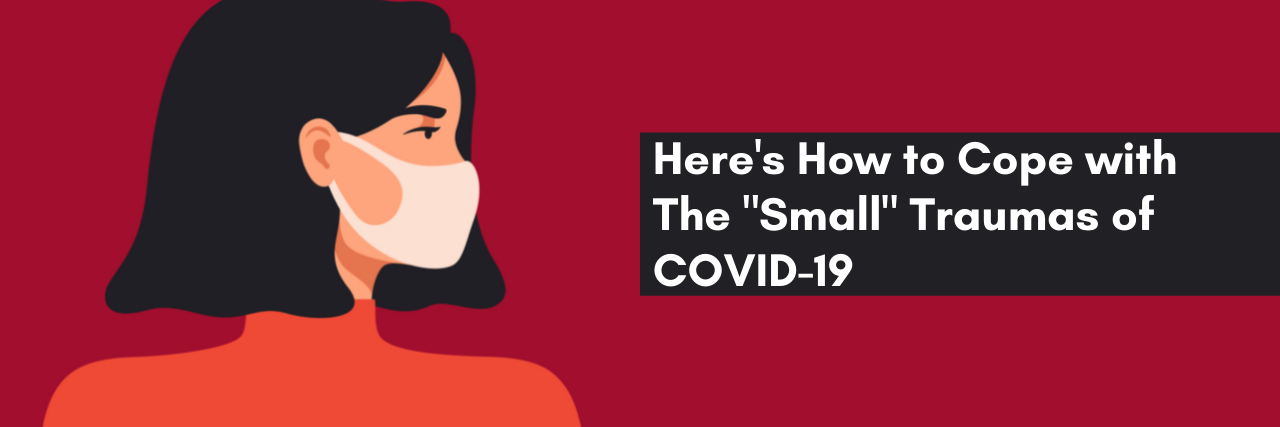During the pandemic, we had to make less-than-ideal adjustments to our lives. Some of us were alone, and some of us were not alone enough. Some of us were expected to accomplish the seemingly impossible while working from home, while others risked their health just to show up to work. Some were laid off due to COVID-19 challenges. Some of us already had mental health concerns before the pandemic, and even more live with those concerns today. All of us were distanced from the social networks that bring us joy, belonging and connection. Some of us felt trapped in violent households and situations. Some got sick, while many passed away.
Even if none of these examples apply specifically to you, we’ve all felt the collective trauma from COVID-19. The specifics can add up, even if they seem tiny at first. Maybe working from home didn’t seem so bad, even though you had to work with a toddler on your lap. Or maybe your teenager earned good grades through distance learning, even though they went an entire year only seeing peers through a screen. Whatever your circumstances, chances are that you worked to adapt to the “new normal.” While adapting to a situation is a wonderful skill to have, it can also mean that we become numb to the real emotional toll that big change can have.
A common coping mechanism when going through hardships is to minimize the experience. Statements like, “It wasn’t that bad,” “It could’ve been worse,” “It wasn’t as bad as X had it” or “At least…” are common ways that people may discount what they’ve been through. The problem with labeling something as “better” or “worse” than someone else’s circumstances is that it blocks us from hearing what our mind and body are really trying to tell us. When we dismiss or invalidate our own situation, it disrupts the healing process and prevents us from fully processing the event. It doesn’t make these issues go away; instead it can create feelings of shame for “not having it as bad” as someone else.
When we don’t acknowledge small or big challenges in our lives, they get pushed into our subconscious minds, and it’s even more difficult to pinpoint. When this shift happens, our bodies may respond in several ways. We can feel tired “for no reason,” anxious about “nothing in particular” or overwhelmed about “nothing.” We may not understand why we feel extra stressed out, and it can be a sign that we have some unprocessed emotions to address.
As the world slowly opens back up post-pandemic, it can feel difficult to process any mixed emotions, especially for trauma survivors. It’s not uncommon for survivors to begin their emotional healing long after the trauma has happened. In crisis the brain consolidates energy to focus on survival, and when the threat has fully passed, then it’s ready to heal. For this reason many people are just now starting to work through the pent-up emotions regarding the pandemic, and some may not be there yet.
The excitement of visiting family and friends might also bring feelings of sadness about the lost year that was 2020. If you’ve been looking forward to the kids going back to school, the first day back might still bring up some grief over the difficulty of distance learning. So many of us are also looking forward to large group events like concerts and theme parks, but nerves might still be high about masks and social distancing, even if the restrictions are lifted. If you are feeling overwhelmed about not being able to take on as much as you did pre-pandemic, take a moment and acknowledge that your brain has taken on a lot of additional stress to cope with the last year. It’s OK to ease back into things slowly and to carve out extra time for rest.
Collectively the “little things” our brains had to adjust to and cope with can create a significant amount of added stress. Pandemic pressure is like a power strip plugged into an electrical outlet. We may be able to accommodate 10 more appliances plugged into a single outlet, but the more we plug in, the higher chances of a blown fuse. As we get back to “normal,” it’s important to unplug all the extra demands on our brains, and the best way to do that is by honoring and processing our emotions. Allow yourself to feel your feelings, no matter how small you think the issue is. We’ve all been through so much this past year, and you deserve to acknowledge that within yourself!

